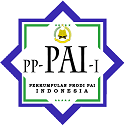The Connection Between the Sufi Curriculum and Character Education of Santri Dayah in Aceh
Abstract
Keywords
Full Text:
21-31References
Ahmad Muhammad Al Karofi. (2023). Sufistic urgency in tnfluencing The psychology of self-control of one’s behavior. IJIP : Indonesian Journal of Islamic Psychology, 5(1), 69–77. https://doi.org/10.18326/ijip.v5i1.62
Amnan, D. H. I. (2022). Shaykh Nuruddin ar-Raniry’s contribution in his As-Shirath al-Mustaqim to Popularizing Islamic Law in the Nusantara. Journal of Islamic Thought and Civilization, 12(1), 270–281. https://doi.org/10.32350/jitc.121.16
Anwar, U., Lutfauziah, A., & Hartono, D. (2021). Implementation of sufism approach character education (Case Study of jagad ’Alimussirry Islamic Boarding School). Journal Intellectual Sufism Research (JISR), 4(1), 1–8. https://doi.org/10.52032/jisr.v4i1.109
Basri, B., Putra, A. J., Zulfikar, T., & Wahidah, W. (2023). Dayah on the move: social enginering through islamic education reformation in post-conflict Aceh, Indonesia. Jurnal Ilmiah Islam Futura, 23(1), 60. https://doi.org/10.22373/jiif.v23i1.15695
Cahyaningsih, A. P., Sukarno, & Triyanto. (2020). Strengthening of School-Based Character Education (Case Study of Full-Day School at Cemara Dua Elementary School, Surakarta). Proceedings of the 3rd International Conference on Learning Innovation and Quality Education (ICLIQE 2019). https://doi.org/10.2991/assehr.k.200129.078
Carle, R. (2019). Islamically Integrated Psychotherapy. Journal of Religion and Health, 58(1), 358–360. https://doi.org/10.1007/s10943-018-0724-x
Cohen, T., & Morse, L. (2014). Karakter moral: Apa itu dan apa fungsinya. Penelitian dalam Perilaku Organisasi , . 34, 43–61. https://doi.org/https://doi.org/10.1016/J.RIOB.2014.08.003 .
Creswell, J. W. (2015). Penelitian Kualitatif & Desain Riset: Memilih di Antara Lima Pendekatan. (3 ed.). PUSTAKA PELAJAR.
Farihin, H. dan F. K. (2023). Etika Profetik Santri; Resepsi Hadis Pada Tradisi Pendidikan Pesantren. J-PAI : Jurnal Pendidikan Agama Islam, 9(2), 113–128. https://doi.org/10.18860/jpai.v9i2.24128
Fathurrochman, I., & Apriani, E. (2017). Pendidikan karakter prespektif pendidikan Islam dalam upaya deradikalisasi paham radikal. POTENSIA: Jurnal Kependidikan Islam, 3(1), 122. https://doi.org/10.24014/potensia.v3i1.2726
Howell, J. D. (2007). Modernity and Islamic Spirituality in Indonesia’s New Sufi Networks. In Sufism and the ‘Modern’ in Islam. https://doi.org/10.5040/9780755607983.ch-012
Hutagalung, B. R. (2020). Jalan damai sufi nusantara : gagasan dan karya Wali Songo, Hamzah Fansuri, & Syamsuddin As-Sumatrani Bagi Perdamaian. Spiritualita, 4(2). https://doi.org/10.30762/spr.v4i2.2687
Inayatillah, I. (2023). Dayah modern: pengembangan kurikulum pendidikan agama Islam di pesantren terpadu serta relevansinya dengan sejarah pendidikan Islam di Aceh. AT-TA’DIB: JURNAL ILMIAH PRODI PENDIDIKAN AGAMA ISLAM, 142–152. https://doi.org/10.47498/tadib.v14i2.1820
Laksana, A. W., Hartiwiningsih, H., Purwadi, H., & Mashdurohatun, A. (2023). The Sufism healing as an alternative rehabilitation for drug addicts and abusers. QIJIS (Qudus International Journal of Islamic Studies), 11(1), 149. https://doi.org/10.21043/qijis.v11i1.15025
Lickona, T. (2012). Mendidik Karakter: Mendidik untuk Membentuk Karakter. Bumi Aksara.
Maskuri. (2013). Metode Penelitian Kualitatif Tinjauan Teoritis dan Praktis. surabaya: Visipress Media.
Mehdi, M., Mehmood, A., & Ali, A. (2021). Role of Sufism and spirituality in psychological Well Being: A Study of elif shafak’s “The Forty Rules of Love” From a Cognitive and Existential Perspective. Journal of English Language, Literature and Education, 2(03), 1–18. https://doi.org/10.54692/jelle.2021.020367
Miles, M. B., Huberman, A. M., & Saldana, J. (2014). Qualitative data analysis: a methods sourcebook (3rd ed.). Sage Publications.
Moleong, L. J. (2008). Metodologi Penelitian Kualitatif ((Cet. XXV). Bandung: PT Remaja Rosdakarya.
Mubarak, F., Alfarasyi, A., Afifulloh, M., & Rahmati, A. (2023). The role of Dayah education in the implementation of Islamic sharia in Aceh. Scaffolding: Jurnal Pendidikan Islam Dan Multikulturalisme, 5(3), 353–369. https://doi.org/10.37680/scaffolding.v5i3.3275
Muhammad Riza, Maskuri, & Mistar, J. (2022). The articulation of Islamic multicultular education of Dayah Mudi Mesra Al-Aziziyah network in Aceh Peace. International Journal of Islamic Education, Research and Multiculturalism (IJIERM), 4(2), 119–134. https://doi.org/10.47006/ijierm.v4i2.136
Mujiburrahman, M., Zulfikar, T., Ahmad, S., Melayu, H. A., & Jasafat, J. (2024). The state intervention in the Islamic education in Aceh: threats or o opportunities? Jurnal Ilmiah Peuradeun, 12(2), 539. https://doi.org/10.26811/peuradeun.v12i2.1349
Mukti, A., Drajat, A., & Mourssi Hassan Kahwash, M. A. (2021). Moral education according to Ibn Miskawayh and Al-Ghazali. JURNAL TARBIYAH, 28(1), 56. https://doi.org/10.30829/tar.v28i1.972
Nurdiyanti, Y., & Sutaryat, U. (2023). Implementasi Riyadhah dalam Membentuk Pribadi Ikhlas pada Santri Pondok Pesantren. Bidayatuna Jurnal Pendidikan Guru Mandrasah Ibtidaiyah, 6(2), 158–173. https://doi.org/10.54471/bidayatuna.v6i2.2627
Putra, N., & Lisnawati, S. (n.d.). Penelitian Kualitatif Pendidikan Agama Islam. PT REMAJA ROSDAKARYA.
Salaeh, A., Saha, N., Khair, N., Djabir, D. A., & Hamed, P. K. (2023). Character education concepts based on Al-Ghazali’s perspective in Ihya’ Ulumuddin. Southeast Asian Journal of Islamic Education, 5(2), 231–241. https://doi.org/10.21093/sajie.v5i2.6398
Silahuddin, S., Wirianto, D., Riza, M., & Zalnur, M. (2023). Reorienting islamic education in Aceh: paradigm and strategies of Dayah leaders in the last two decades. Al-Ta Lim Journal, 30(2), 147–156. https://doi.org/10.15548/jt.v30i2.812
Subandi, M. A., Chizanah, L., & Subhan, S. (2022). Psychotheraputic Dimensions of an Islamic-Sufi-Based Rehabilitation Center: A Case Study. Culture, Medicine, and Psychiatry, 46(2), 582–601. https://doi.org/10.1007/s11013-021-09738-1
Sugiyono. (2021). Metode Penelitian Kuantitatif & Kualitatif. Bandung: Elfabeta.
Syarifuddin, S. (2021). Islamic plurality in the perspectives of ulama dayah in Aceh. Jurnal Ilmiah Peuradeun, 9(3), 567. https://doi.org/10.26811/peuradeun.v9i3.583
Wahyudi, M. A., Azhar, A., & Shadiqin, S. I. (2023). Sufisme-based character practices at Darul Afkar Islamic Boerding School Klaten. Spiritual Healing : Jurnal Tasawuf Dan Psikoterapi, 4(2), 52–57. https://doi.org/10.19109/sh.v4i2.19147
ZA, T., Idris, S., Murziqin, R., Riza, S., & Khafidah, W. (2021). Parameter transformasi kurikulum dayah salafiyah di aceh. Tazkir : Jurnal Penelitian Ilmu-Ilmu Sosial Dan Keislaman, 7(1), 91–110. https://doi.org/10.24952/tazkir.v7i1.4218
DOI: https://doi.org/10.18860/jpai.v11i1.28516
Refbacks
- There are currently no refbacks.
Copyright (c) 2024 Muhammad Daniel, Aulia Subita, Kamal Mukhtar, Muhammad Fahmi Hidayatullah

This work is licensed under a Creative Commons Attribution-ShareAlike 4.0 International License.
...............................................................................................................................................................
Editorial Office:
Fakultas Ilmu Tarbiyah dan Keguruan
Universitas Islam Negeri Maulana Malik Ibrahim Malang
Jalan Gajayana 50 Malang, Jawa Timur, Indonesia 65144
Phone (0341) 552398, Faximile (0341) 552398
E-mail: jpai@uin-malang.ac.id
...............................................................................................................................................................

J-PAI: Jurnal Pendidikan Agama Islam is licensed under a CC BY-SA 4.0.
...............................................................................................................................................................
Indexed by:

















